Foundation's female voices: "Women have a right to play"
MIES (Switzerland) - Five women, five continents, five weeks, five stories of resilience, leadership and Basketball For Good leading up to the International Women’s day on March 8th.
MIES (Switzerland) - Five women, five continents, five weeks, five stories of resilience, leadership and Basketball For Good leading up to the International Women’s day on March 8th. For our last week, we are sharing the inspirational story of Sana Mahmud, a former international multi-sport athlete advocating for women and girl’s rights and developing project to help women and girls. Sana is from Pakistan, which currently ranks as the second lowest country in the world for gender equality according to the Global Gender Gap index and she is working hard to improve this.
“My very first interaction with basketball was back in 1998, when I was 8 years old” explains Sana Mahmud. “We took a trip to the United States, where we visited my uncle’s family in Chicago. The Bulls were everywhere. My cousins had Chicago Bulls merchandise and they would shoot hoops in their driveway all day long. “
“Fast forward to 2003, I was in middle school where they had just constructed a basketball court. As a sporty, energetic child, the first thing I did was buy a ball and go experiment on the court. I would shoot hoops all day: before the start of school, during recess, after school, in-between classes… Pretty soon I realized this was my happy place and it has been so since.”
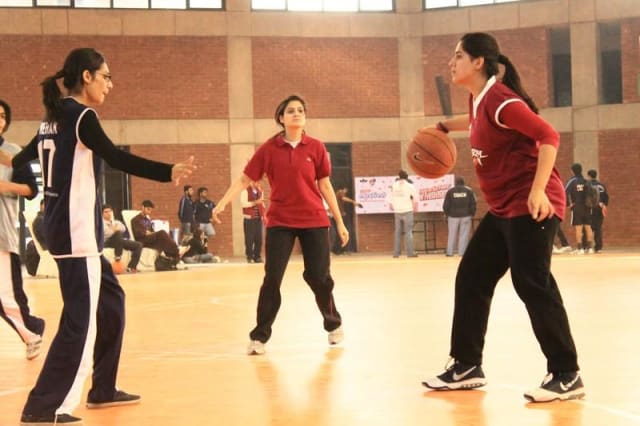
“I grew up playing basketball with the boys in my school, and I always had to work twice as hard to prove I was good enough to belong there. Very soon I learnt to hold my own on and off the court. As I got better, and went from being picked first, to picking the teams, I became confident as a player and a person.”
“As a young girl I also quickly observed how females are sexualized, and as a teenager that “developed” much too fast, I suffered from issues of body image and was often conscious of how I looked. Basketball stripped all of that away and I truly discovered the strength and ability of my body and felt comfortable in my own skin. Since then I haven’t cared about tanned skin, baggy clothing, or bruised arms and legs and as an adult, I feel I can manage how men (and others) perceive me without ever feeling vulnerable about my body. “
“As I grew older and my studies got challenging, sport just taught me how to be more disciplined and manage my time better. I am who I am today because I chose a life of sport (and of course encouragement & support from my parents).”
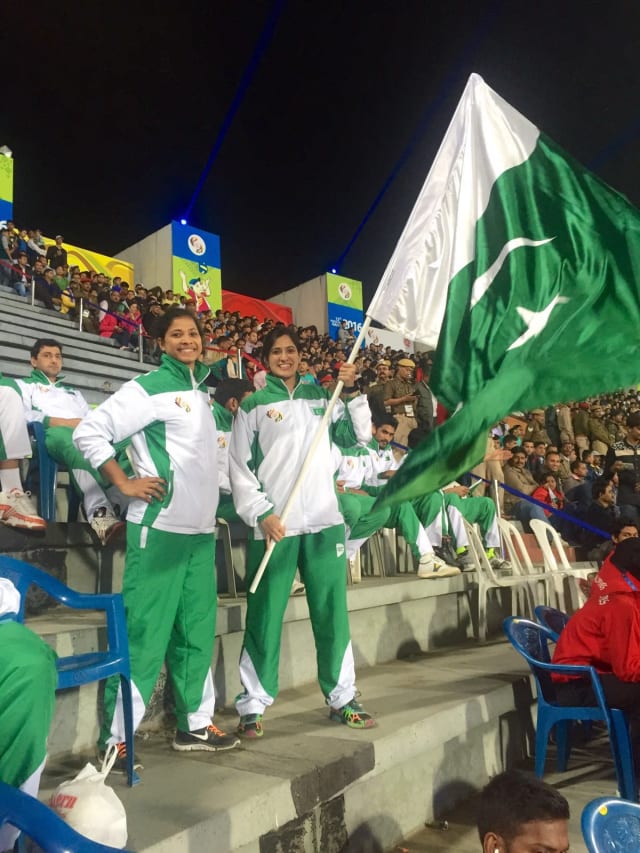
Sana is a multi-sport athlete and former Captain of the Pakistan National Women’s Football (2010-12) & Basketball Teams (2016-19), having represented her country in various national and international events. “I have had the chance to travel across the country (and abroad) due to sport. My first tour out of the city was when I was 17 and was called last minute to be part of the Rawalpindi division team playing the Basketball Championship in Faisalabad. I lived in a hostel, met, and interacted with people so different from myself. I have learnt to respect diversity and co-exist with people from different cultures”.
“There were hardly any girls in the game when I started playing…. and I have received a lot of discrimination and harassment for being a female athlete. When we would drive by the park when I was little, I would see the courts full of boys playing ball, and think to myself “I wish I was a boy”… But I would play and eventually I got over the way people stared at the one girl on the court, but I have seen how it can make most girls very self-conscious”.
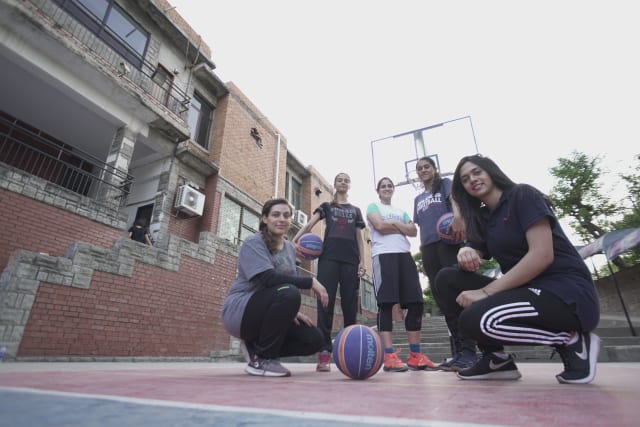
“Now, after having lived 31 years of my life, playing competitive sport, and having given birth to a beautiful baby boy- I would never trade being a woman. I have just come to learn that it doesn’t have to be one or the other: I can be a woman and still play. You just need the support of great people around you. My family, my husband and friends have been instrumental. Even though it was hard to pave the way…once I did, I got extra recognition for doing so, which allowed me to keep going.”
Sana is now fighting to make girls playing publicly the norm. “I organize pick-up games for girls, I find it’s still a challenge to find safe spaces for girls. Not everyone feels comfortable playing on an open court where strangers do nothing but stare or pass comments at girls playing”.
Sana and the girls she brought to the public courts faced some obstacles, “at first, we weren’t given room to play. But after watching us shoot some hoops, some of the boys came up to ask us if we wanted to play against them and whoever would win would get the court. We started the full court game and ended up beating them 20-0! Immediately after, they came up to us, asking where we played and what our credentials were. Some wanted to exchange contact information to continue playing… and since then, we became regulars at the park. I could see that the girls who had never played against boys soon became comfortable to do so, and the boys who probably thought before that ‘girls can’t play’ really started looking up to them. I have had some great conversations with some of the youngsters sitting on the sidelines… telling them women deserve respect, women have a right to play… concepts that seemed very new to these boys. I find these experiences to be extremely valuable for both the boys and girls, and I think basketball allowed it to happen”.
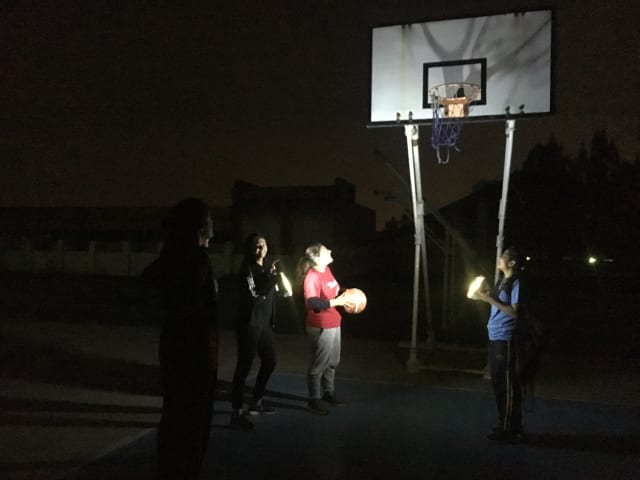
Sana was a beneficiary of the FIBA Foundation’s first Asian Mini Basketball Convention in Asia, “I witnessed how to effectively engage a large number of children in basketball. I was already familiar with the concept of using game-based activities to make sports more fun for children, but during the Convention, learnt how to modify basketball drills to make them more fun and effective. I was also very happy to learn that this was a priority for FIBA (to develop mini basketball), but also to engage children and communities in a fun way, not just for competitive basketball”.
“Following the convention, I received a grant for a community project that I had applied for to the U.S Embassy here in Islamabad. The project was called “We Got Game: An Initiative for Women and Youth Basketball Development” and it included a series of events including a Girls’ Basketball Leadership Camp, a 3x3 Girls Summer Basketball Cup and a Mini Basketball Jamboree, all implemented in the summer of 2019. Thanks to the grant money, I could provide participants with playing kits, basketball equipment and snacks and water during the events. I also had the support of the National Federation, referees, coaches and other players who made the entire thing a success”.
“My favorite part was that since I had all this basketball equipment at hand, including cones, mini and regular basketballs, mini hoop etc., I decided to hold a session at one of the charity schools located in the outskirts of the city. They had always requested me to expose their children to the sport of basketball, and when I got the chance, I decided to run some sessions with them and donate all the equipment there. To give some context, these children belong to very impoverished areas in a part of the city where there are no public schools. The children had no idea what basketball was, but after some basic orientation, and introduction to some fun games, they picked it up very quickly- and most importantly were ecstatic!”
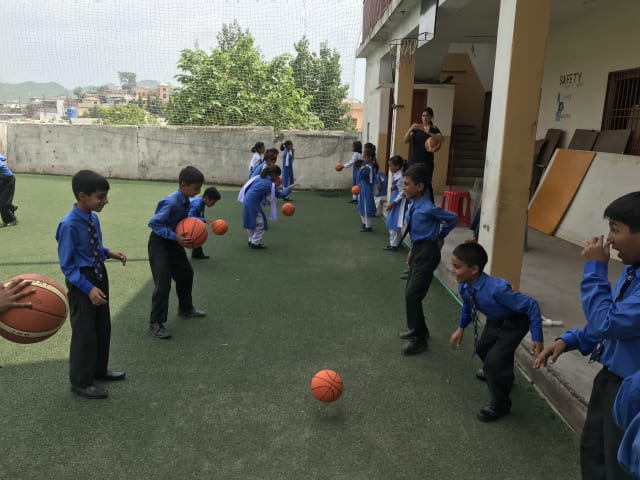 Sana was able to donate the basketball equipment to a charity school
Sana was able to donate the basketball equipment to a charity school
Sana is also very active with the Pakistani National Federation. “If they need me at events, or to coach girls, I am always willing and up for the task”.
On top of her involvement with Basketball and the Federation, Sana also uses sport for good within her work. “I work as a Project Officer at Right To Play in Pakistan. Right To Play is a global non-profit that uses the power of play to protect, educate, and empower children to rise above adversity.”
“I have been with them for a little over 4 years now and manage sport-based youth development and girls’ empowerment programs. I love going to the schools where we work to see the actual impact, because it really is making a difference. Sport for the masses (especially girls), is not common – our public-school system lacks infrastructure, resources, knowledge, expertise, and the interest to invest in promotion and development of sport (most of the focus is on academics). At Right To Play, we work to revive a culture of sport and physical education, particularly using sport as a tool for holistic child development. We partner with government schools or community-based charity schools to include a play period for each class and ensure that all children feel included and are exposed to sport and play-based activities”.
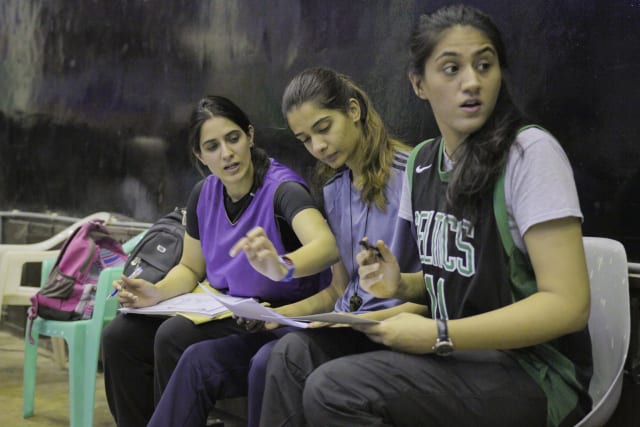 Sana helps the girls at her leadership camp
Sana helps the girls at her leadership camp
“Basketball is bigger than what people may think. It’s a language, it’s a community, it’s a bond. The love of basketball can bring people together. If used intentionally and effectively, basketball can build bridges”.
Despite taking care of her 2 month old baby, Sana is currently taking a referee course organized by FIBA. “I’m trying to see if I can get licensed and move towards the technical/managerial side of things, while also of course continuing what I do now”. She continues to be an advocate for women and girls' rights and also served as UNICEF's Menstrual Health Management Champion, creating awareness on important issues around women's health.
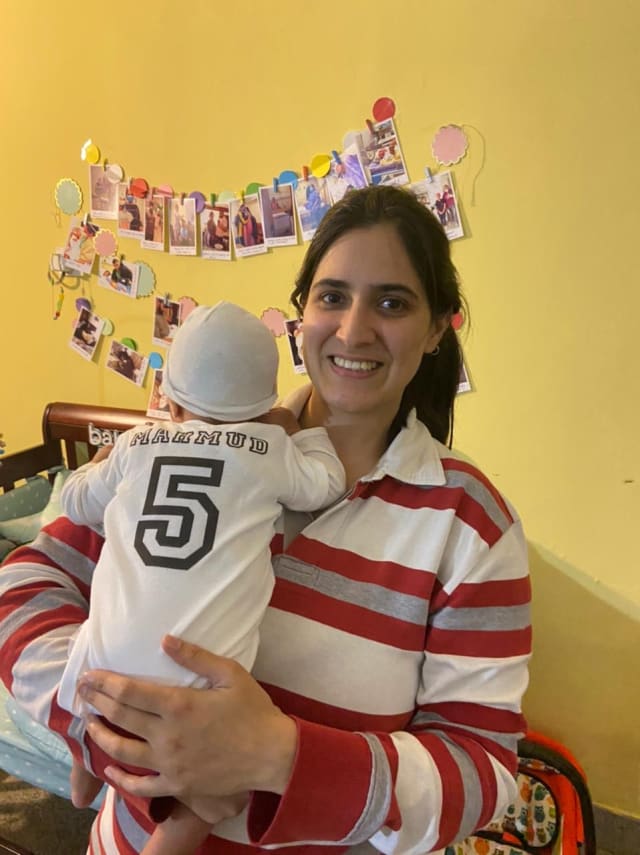
She is also continuing her mission of helping girls and youth play sport “I always say it’s not just about teaching a girl how to kick, throw or dribble a ball, it’s about telling her that one day not only can she be a baller, but a doctor, a pilot, an engineer. Sports – such a traditionally male dominated field- provides a platform for girls to penetrate the public and male space, break down gender stereotypes, and leading to greater self-confidence”.
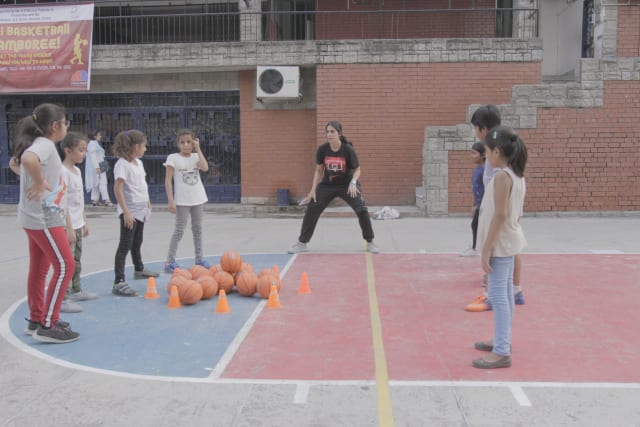
“You don’t have to want to become a professional athlete to play sports. You should just play because it’s a whole experience that teaches you so much, you make great friends and learn so much about yourself! Do it for that. I encourage everyone to have hobbies/passions, but especially one interest that is physical- that allows you to connect with your body, and sport is the best way to do so!”